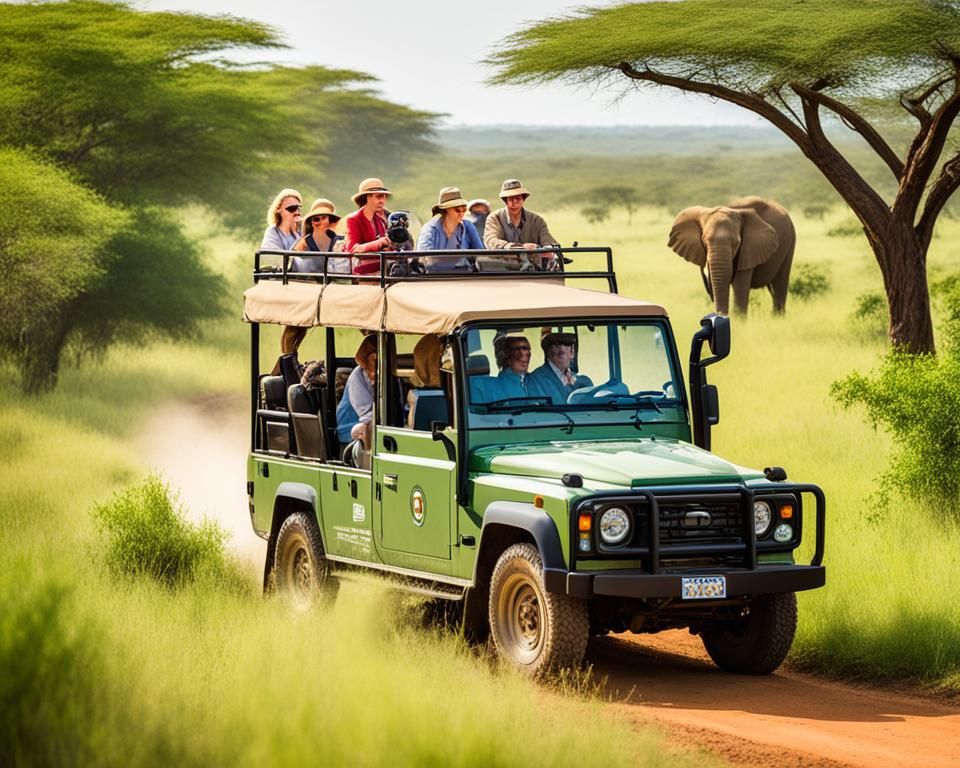Private wildlife safaris offer more than just a thrilling adventure into the wild. They provide a unique opportunity for travelers to gain a deeper understanding of conservation and actively contribute to wildlife preservation. These safaris go beyond traditional sightseeing, offering immersive experiences that educate and inspire travelers to become advocates for environmental conservation.
During private wildlife safaris, travelers have the chance to participate in guided tours, interactive programs, and educational initiatives that highlight the importance of conservation. They learn about the delicate balance of ecosystems and the impact that human activities can have on wildlife and their habitats. By experiencing these lessons firsthand, travelers are motivated to make a positive difference in protecting the natural world.
Conservation education is a key component of private wildlife safaris, as it aims to create awareness and inspire action. Through engaging activities and knowledgeable guides, travelers gain insights into the challenges facing wildlife and the various conservation efforts in place to address them. As a result, they develop a stronger connection with nature and a sense of responsibility towards its preservation.
By choosing private wildlife safaris, travelers not only have the opportunity to enjoy an unforgettable wildlife experience but also to become part of a global movement towards conservation and sustainable travel. Their participation in these safaris contributes to the protection of wildlife habitats and the long-term survival of endangered species.
Key Takeaways:
- Private wildlife safaris provide immersive experiences that educate travelers on conservation.
- These safaris go beyond traditional sightseeing, offering guided tours and interactive programs focused on conservation education.
- Travelers develop a stronger connection with nature and become advocates for environmental preservation.
- Choosing private wildlife safaris contributes to the protection of wildlife habitats and the survival of endangered species.
- Conservation education is a key component of private wildlife safaris, creating awareness and inspiring action.
The Surge in Sustainable Travel and Its Impact on Wildlife Safaris
Sustainable travel has experienced a significant surge in recent years, with more and more travelers seeking environmentally-friendly and socially-conscious travel experiences. This growing trend has had a profound impact on the wildlife safari industry, driving the adoption of sustainable practices and conservation efforts.
The Role of Sustainable Travel in Conservation Efforts
Sustainable travel plays a vital role in supporting conservation efforts. By choosing sustainable travel options, travelers directly contribute to the protection of wildlife habitats and the preservation of biodiversity. Sustainable travel practices minimize the negative environmental impact of tourism, such as reducing carbon emissions, conserving water resources, and minimizing waste generation.
Additionally, sustainable travel often involves supporting local communities and wildlife conservation projects through responsible tourism practices. This creates economic incentives for communities to protect their natural resources and wildlife, fostering a sustainable relationship between conservation and tourism.
Growth of the Global Safari Tourism Market
The surge in sustainable travel has also contributed to the growth of the global safari tourism market. As travelers increasingly seek authentic wildlife experiences in their travels, safari destinations have become popular choices. This has led to an expansion of safari tourism offerings and the development of new safari destinations around the world.
Safari operators and tourism organizations have responded to this growing demand by implementing sustainable practices and conservation initiatives. These efforts aim to minimize the impact of tourism on wildlife and their habitats while providing unforgettable experiences for travelers.
| Impact of Sustainable Travel on Wildlife Safaris | Benefits of Sustainable Travel for Conservation |
|---|---|
| Adoption of sustainable practices | Protection of wildlife habitats |
| Conservation initiatives in the industry | Preservation of biodiversity |
| Reduced negative environmental impact | Support for local communities |
| Growth of the global safari tourism market | Expansion of safari tourism offerings |
Private Wildlife Safaris as Catalysts for Conservation Education
Integrating Conservation Messages into Safari Experiences
Private wildlife safaris offer more than just thrilling adventures in the wilderness. They serve as catalysts for conservation education, providing travelers with unique opportunities to learn about wildlife conservation and environmental sustainability. These safaris integrate conservation messages into the safari experiences, creating a seamless educational journey for travelers.
Through expert-guided tours, travelers gain insights into the delicate balance of ecosystems, the importance of biodiversity, and the challenges faced by wildlife populations. They learn about the efforts being made to protect and preserve endangered species and their habitats. By witnessing conservation initiatives firsthand, travelers develop a deep appreciation for the interconnectedness of all living beings and the critical role humans play in their survival.
During safari excursions, knowledgeable guides share information about local flora and fauna, highlighting the importance of conservation and the impact of human activities on wildlife and their habitats. Travelers are encouraged to observe wildlife ethically, respecting their natural behaviors and maintaining a safe distance to minimize disruption. This integration of conservation messages in safari experiences not only educates travelers but also instills a sense of responsibility and stewardship towards the environment.
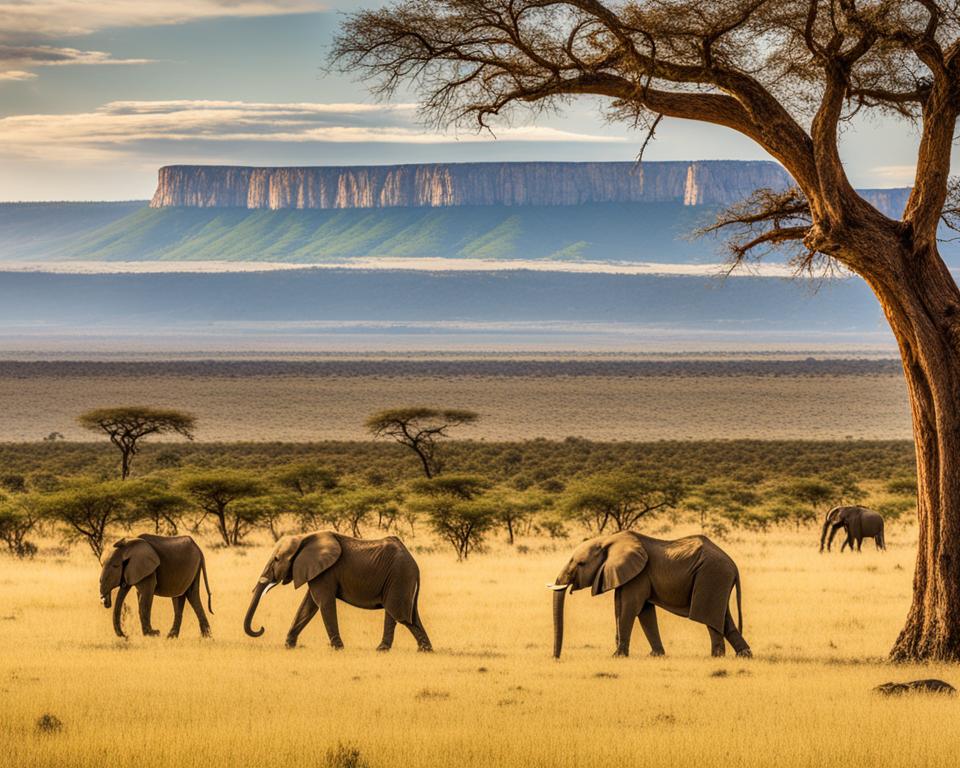
Innovative Approaches to Wildlife Education on Safari
Private wildlife safaris embrace innovative approaches to wildlife education, transforming safaris into immersive learning experiences. Conservation-focused programs and activities are designed to engage travelers of all ages and backgrounds, providing a comprehensive understanding of the challenges facing wildlife and the importance of conservation efforts.
One such approach is the establishment of conservation centers within safari lodges, where visitors can participate in interactive programs and workshops. These centers serve as educational hubs, offering insights into wildlife research, conservation projects, and sustainable practices. Visitors can learn about tracking techniques, ecological surveys, and animal behavior studies, gaining a deeper understanding of the scientific methodologies used in wildlife conservation.
In addition to traditional classroom settings, safaris incorporate outdoor classrooms into their itineraries, allowing travelers to learn in the heart of nature. These outdoor education programs provide hands-on experiences, such as identifying wildlife tracks, conducting birdwatching excursions, or planting native trees for habitat restoration. By immersing travelers in experiential learning activities, private wildlife safaris enable them to connect with nature on a deeper level and develop a personal connection to the conservation cause.
Advancing Sustainability Through Eco-Friendly Safari Lodges
Eco-friendly safari lodges play a crucial role in advancing sustainability in the tourism industry. These lodges prioritize environmentally-friendly practices, such as utilizing renewable energy sources like solar power, implementing efficient waste management systems, and minimizing their carbon footprint. By embracing sustainable practices, eco-friendly safari lodges contribute to the conservation of natural resources and mitigate the negative impacts of tourism on the environment.
Renewable Energy and Waste Management in Safari Accommodations
One of the key initiatives adopted by eco-friendly safari lodges is the integration of renewable energy sources. Lodges are harnessing the power of sunlight through solar panels to generate clean and sustainable energy. By reducing reliance on fossil fuels, these lodges minimize their carbon emissions and decrease their ecological footprint. This commitment to renewable energy not only reduces the environmental impact but also sets an example for other tourism establishments to follow.
In addition to renewable energy, waste management systems are another important aspect of sustainable safari accommodations. Eco-friendly lodges implement efficient waste reduction, recycling, and disposal practices to minimize their contribution to landfills and pollution. By implementing strict waste management protocols, these lodges ensure that their operations are sustainable and environmentally responsible.
To further enhance waste management efforts, some eco-friendly lodges also prioritize composting and recycling organic waste materials. This approach not only reduces the amount of waste sent to landfills but also helps create nutrient-rich compost that can be used for landscaping and gardening within the lodge premises. By implementing these innovative waste management practices, eco-friendly safari lodges set an example for responsible tourism and contribute to the conservation of natural resources.
Supporting Local Communities with Eco-Lodge Initiatives
Eco-friendly safari lodges go beyond environmental sustainability and also prioritize the well-being and empowerment of local communities. These lodges strive to create positive socio-economic impacts by supporting local businesses, providing employment opportunities, and promoting community development initiatives.
Through various eco-lodge initiatives, such as sourcing locally-produced goods and services, eco-friendly lodges contribute to the growth of local economies. By supporting local artisans, farmers, and entrepreneurs, these lodges help foster sustainable livelihoods within the community. This economic empowerment not only benefits individuals but also strengthens the overall socio-economic fabric of the destination.
In addition to economic support, eco-friendly lodges engage in community initiatives, such as education and skills development programs, to empower local residents. These programs aim to enhance long-term sustainability by equipping community members with the necessary knowledge and skills to actively participate in conservation efforts and make a positive impact on their environment.
| Advantages of Eco-Friendly Safari Lodges | Environmental Benefits | Social Benefits |
|---|---|---|
| Reduced carbon footprint through renewable energy usage | Supports local economies and businesses | Empowers local communities through education and skills development |
| Efficient waste management systems | Preserves natural resources and biodiversity | Creates employment opportunities for local residents |
| Promotes sustainable tourism practices | Minimizes pollution and land degradation | Preserves cultural heritage and promotes cross-cultural understanding |
Net-Positive Travel: Going Beyond Carbon Offsetting in Safaris
Net-positive travel represents a significant shift in the travel industry, with a focus on creating a positive impact on the environment and local communities. While carbon offsetting has been a common practice to mitigate the carbon emissions of travel, safaris have embraced a more holistic approach that goes beyond simply offsetting their footprint. By collaborating with conservation organizations and implementing community-based conservation initiatives, safaris are making a tangible difference in both environmental preservation and local development.
Collaboration between travel companies and conservation organizations is a key element of net-positive travel in the safari industry. These partnerships allow for the implementation of sustainable practices and the integration of conservation efforts into the safari experience. Travel companies work hand in hand with conservation organizations to develop strategies that reduce the environmental impact of safaris while fostering positive outcomes for both wildlife and local communities.
Community-based conservation is a multifaceted approach that forms a vital part of net-positive travel in safaris. By empowering local communities to take an active role in conservation efforts, safaris create a sense of ownership and shared responsibility. This approach ensures that the benefits of tourism flow directly to the communities, leading to increased support for conservation initiatives and the preservation of wildlife habitats.
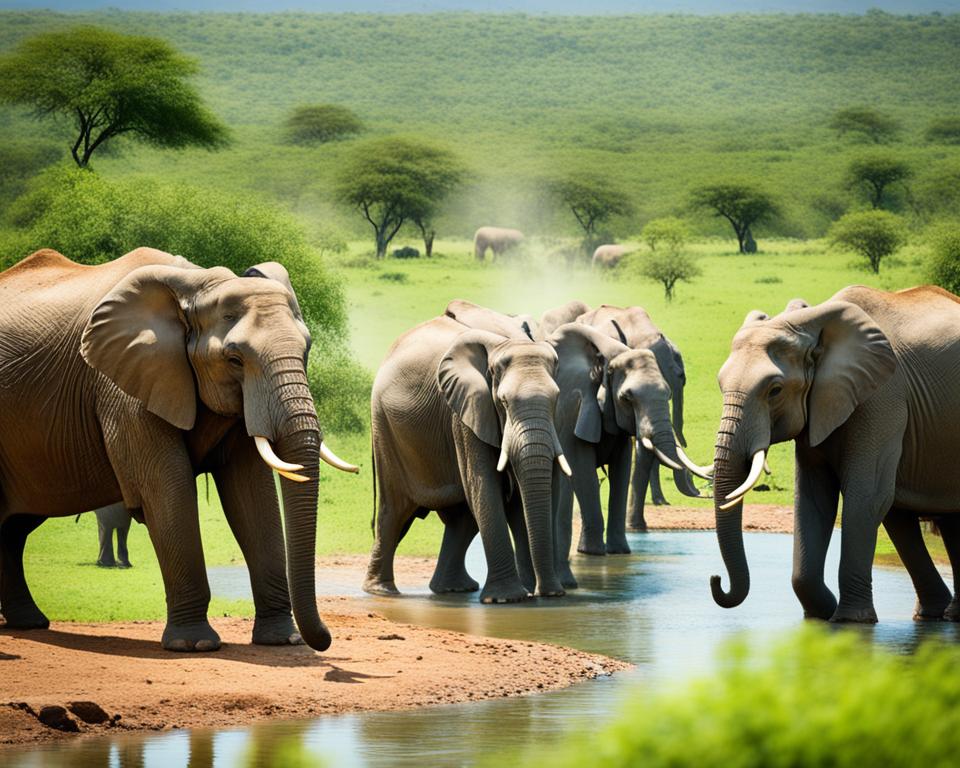
Collaboration between Travel Companies and Conservation Organizations
Collaboration between travel companies and conservation organizations is vital in promoting net-positive travel in safaris. These partnerships enable the implementation of sustainable practices and the integration of conservation efforts into the safari experience. Through joint efforts, travel companies can align their operations with conservation goals, ensuring that safaris minimize their environmental impact while actively contributing to conservation and community development.
Community-Based Conservation: A Multifaceted Approach
Community-based conservation is a multifaceted approach that involves empowering local communities to actively participate in wildlife preservation. By engaging communities in decision-making processes and providing sustainable opportunities, safaris ensure that conservation efforts are rooted in local needs and priorities. This approach not only fosters a sense of ownership and responsibility but also bolsters local economies by creating jobs and generating income through responsible tourism.
| Collaboration Between Travel Companies and Conservation Organizations | Community-Based Conservation |
|---|---|
| Collaborative efforts to implement sustainable practices | Empowerment of local communities |
| Integration of conservation into safari experiences | Increased support for conservation initiatives |
| Minimization of environmental impact | Preservation of wildlife habitats |
Embracing the Power of Outdoor Learning Adventures
Outdoor learning adventures are a transformative way to engage with nature and foster a deep understanding of conservation and environmental sustainability. Through these experiences, travelers have the opportunity to go beyond traditional classroom learning and actively participate in hands-on activities that immerse them in the natural world.
Outdoor learning adventures take place in nature-based settings such as national parks, wildlife reserves, and outdoor classrooms. These environments serve as the perfect backdrop for experiential learning, where travelers can witness the intricate connections between wildlife, ecosystems, and sustainable practices.
During outdoor learning adventures, participants can explore natural habitats, observe wildlife in their natural environments, and engage in activities that promote a deeper understanding of conservation principles. These activities may include guided hikes, wildlife tracking, birdwatching, or even volunteering in conservation projects.
Through these interactive experiences, travelers gain firsthand knowledge of the challenges facing our planet and the importance of preserving biodiversity. They develop a personal connection to nature and a sense of responsibility to protect fragile ecosystems.
Outdoor education programs further enhance the learning journey, providing structured educational activities and workshops that delve into conservation topics. These programs may cover subjects like habitat restoration, sustainable resource management, or the effects of climate change on wildlife populations.
Moreover, outdoor learning adventures promote experiential learning, allowing travelers to actively engage with their surroundings and apply their knowledge in real-world situations. This hands-on approach fosters a deeper understanding of conservation principles and empowers travelers to become advocates for environmental stewardship.
Outdoor learning adventures offer a unique educational experience that combines adventure, exploration, and conservation. By embracing the power of these immersive adventures, individuals can gain valuable insights into the natural world and develop a lifelong passion for environmental sustainability.
Empowering Communities with Sustainable Development and Tourism
Local Economic Growth Fueled by Safari Tourism
Safari tourism not only offers unforgettable wildlife experiences but also serves as a catalyst for local economic growth. When communities living in wildlife-rich areas actively engage in sustainable development and participate in the tourism industry, they gain the opportunity to generate income and improve their living standards. Through the establishment of safari lodges, local businesses, and community-based initiatives, safari tourism creates jobs and stimulates entrepreneurship, contributing to the overall economic well-being of the community. This economic empowerment enables individuals to access education, healthcare, and other essential services, leading to a higher quality of life for residents.
Moreover, as safari tourism flourishes, it generates ripple effects throughout the local economy. Ancillary industries, such as transportation, food services, and handicraft production, benefit from the increased demand for goods and services, creating further employment opportunities. The growth of safari tourism creates a positive economic cycle, driving local economic development and enhancing livelihoods.
Social Benefits of Engaging Communities in Conservation
Community engagement is a vital component of successful conservation efforts in wildlife-rich areas. Through safari tourism, local communities become stakeholders in environmental preservation and resource management, providing them with a voice in decision-making processes. The active involvement of communities ensures that conservation initiatives align with their needs, aspirations, and cultural values.
Engaging communities in conservation projects also fosters a sense of ownership and pride in their natural heritage. By participating in initiatives such as wildlife monitoring, habitat restoration, and anti-poaching efforts, local communities develop a deeper connection with their environment and actively contribute to its protection. This sense of stewardship nurtures a long-lasting commitment to conservation and promotes sustainable practices within the community.

Furthermore, community engagement in conservation can lead to the preservation of traditional knowledge and cultural practices. By integrating local cultural heritage into safari experiences, tourists gain a deeper understanding and appreciation for the community’s way of life. This cultural exchange promotes cross-cultural understanding and respect, fostering mutual benefits for both travelers and local communities. Ultimately, the social benefits of engaging communities in conservation efforts through safari tourism go beyond economic empowerment, creating a more inclusive and sustainable future for all.
Protecting Biodiversity through Responsible Safari Practices
Responsible safari practices are essential for the protection of biodiversity and the fight against wildlife poaching. Safaris follow ethical guidelines and regulations to ensure the least possible disturbance to wildlife habitats and populations. By promoting responsible behavior and raising awareness among travelers about the importance of biodiversity conservation, safaris actively contribute to the protection of vulnerable species and their habitats.
Anti-Poaching Efforts Supported by Safari Tourism
Safari tourism plays a crucial role in supporting anti-poaching efforts in wildlife-rich areas. By generating revenue and promoting economic growth, safaris contribute directly to the funding of anti-poaching initiatives. These efforts involve the employment and training of anti-poaching rangers, the implementation of surveillance technologies, and the establishment of protected areas to safeguard wildlife from illegal activities. Through responsible safari practices, travelers become allies in the fight against poaching and actively contribute to wildlife protection.
Creating Sustainable Partnerships for Wildlife Protection
Creating sustainable partnerships is vital for effective wildlife protection. Safaris collaborate with local communities, conservation organizations, and government agencies to develop initiatives that ensure the long-term conservation of biodiversity and wildlife habitats. These partnerships focus on community engagement, sustainable resource management, and education to promote responsible tourism practices. By working together, safaris, local communities, and conservation organizations establish a sustainable framework for the protection of wildlife and the preservation of biodiversity.
Investing in Conservation: Travelers Making a Real Difference
As travelers, we have the incredible opportunity to contribute to conservation efforts and make a real difference in protecting our planet’s natural wonders. By investing in responsible tourism practices, such as participating in private wildlife safaris and other sustainable travel experiences, we directly support conservation initiatives and wildlife protection.
When we choose to embark on private wildlife safaris, we not only get to immerse ourselves in the beauty of nature but also contribute to the preservation of wildlife habitats. Our financial contributions play a crucial role in funding conservation projects, such as anti-poaching efforts, habitat restoration, and wildlife research. Every dollar we invest has a tangible impact on the sustainability of these initiatives.
But our impact goes beyond financial contributions alone. As travelers, we become advocates for conservation, spreading awareness and inspiring others to follow in our footsteps. By sharing our experiences and promoting responsible travel practices, we encourage more people to invest in conservation and prioritize the protection of our planet’s biodiversity.
Travelers have the power to make a difference. Through our support and investment in responsible tourism, we can protect wildlife and their habitats for future generations.
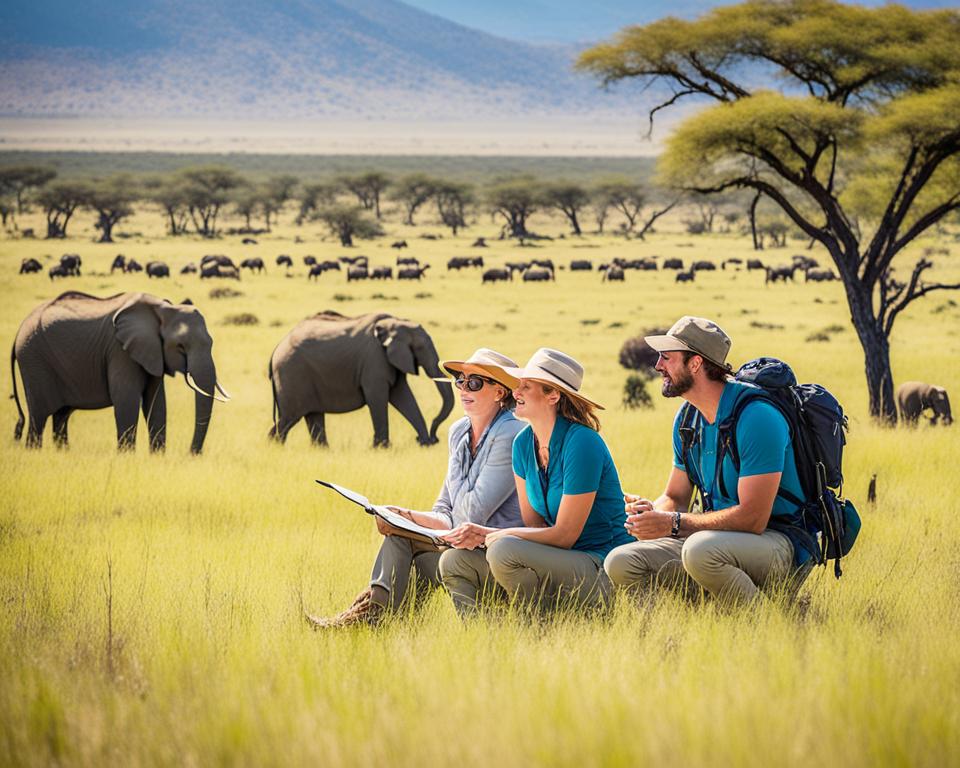
“The greatest threat to our planet is the belief that someone else will save it.” – Robert Swan
By investing in conservation, we empower ourselves to take an active role in preserving our planet’s natural heritage. We understand that the decisions we make as travelers have consequences, and by choosing to invest in conservation, we align our actions with our values.
Travelers have the unique opportunity to witness firsthand the wonders of the natural world. Through responsible tourism practices, we can make a positive impact on wildlife protection, habitat preservation, and the overall sustainability of our planet. Let us embrace this privilege and continue investing in conservation to ensure a brighter future for all.
From Safari to Sanctuary: Safaris Funding Critical Conservation Work
Safaris play a vital role in funding critical conservation work, enabling the protection of endangered species and the preservation of their habitats. Through the financial contributions from safari tourism, conservation organizations can allocate resources to support wildlife conservation initiatives, anti-poaching efforts, and habitat restoration projects.
Contributions to Wildlife Conservation Funds
By participating in safaris, travelers directly contribute to wildlife conservation funds, which are essential for supporting conservation efforts around the world. These funds provide the financial resources needed to implement proactive conservation measures, such as scientific research, wildlife monitoring, and habitat management. Additionally, the contributions from safari tourism help to establish and maintain protected areas where endangered species can thrive.
The funds raised through safaris are instrumental in the ongoing protection and preservation of wildlife and their ecosystems. They allow conservation organizations to implement long-term strategies that address the root causes of biodiversity loss and habitat degradation. By investing in these funds, travelers can make a direct and lasting impact on the conservation of endangered species and the overall health of ecosystems.
“The financial contributions from safari tourism enable the implementation of proactive conservation measures and the establishment of protected areas.”
Direct Impact of Safari Tourism on Endangered Species
Safari tourism has a direct impact on the conservation of endangered species by providing crucial financial support and creating awareness about their plight. The revenue generated from safaris allows conservation organizations to invest in initiatives such as anti-poaching patrols, community-based conservation projects, and habitat restoration efforts.
Through tourism, endangered species are protected through increased monitoring and patrols, which deter illegal hunting and poaching activities. The presence of safari operators and tourists in protected areas acts as a deterrent to poachers and helps ensure the safety of wildlife populations.
Safari operators also play a vital role in educating tourists about the importance of conservation and the need to protect endangered species. By providing information and engaging in dialogue, they raise awareness about the threats facing these species and encourage sustainable tourism practices that minimize negative impacts on their habitats.
Overall, safari tourism has a direct and positive impact on endangered species by providing the resources needed for their protection and raising awareness about their conservation needs.
The Challenges and Triumphs of Implementing Ecotourism in Africa
Implementing ecotourism initiatives in Africa presents both challenges and triumphs. The continent’s vast natural beauty and diverse wildlife make it an ideal destination for sustainable travel and conservation efforts. However, striking a balance between tourism growth and environmental conservation can be a complex endeavor.
One of the significant challenges in implementing ecotourism in Africa is the proper management of tourism activities. The rapid increase in tourist arrivals can place strain on fragile ecosystems and local communities if not carefully regulated. It is crucial to establish and enforce guidelines and regulations that promote responsible tourism practices, minimize negative impacts, and ensure the long-term sustainability of natural resources.
Another challenge lies in the preservation of cultural heritage and community involvement. Indigenous cultures and local communities play a vital role in preserving ecosystems and wildlife habitats. However, the influx of tourists can disrupt traditional practices and create conflicts over land use and resources. Implementing ecotourism initiatives must involve meaningful engagement with local communities, respecting their rights and empowering them to actively participate in conservation efforts.
Despite the challenges, implementing ecotourism in Africa also brings triumphs and positive outcomes. Ecotourism has the potential to generate significant economic benefits for local communities and promote sustainable development. By providing employment opportunities, supporting small businesses, and investing in local infrastructure, ecotourism helps alleviate poverty and improve the standard of living.
Moreover, successful ecotourism models in Africa demonstrate that tourism can be a force for environmental conservation. By raising awareness among visitors, promoting responsible behavior, and directing funds toward conservation projects, ecotourism contributes directly to the protection of wildlife and their habitats. The positive transformation brought about by ecotourism extends beyond the natural environment, embracing cultural preservation and fostering cross-cultural understanding.
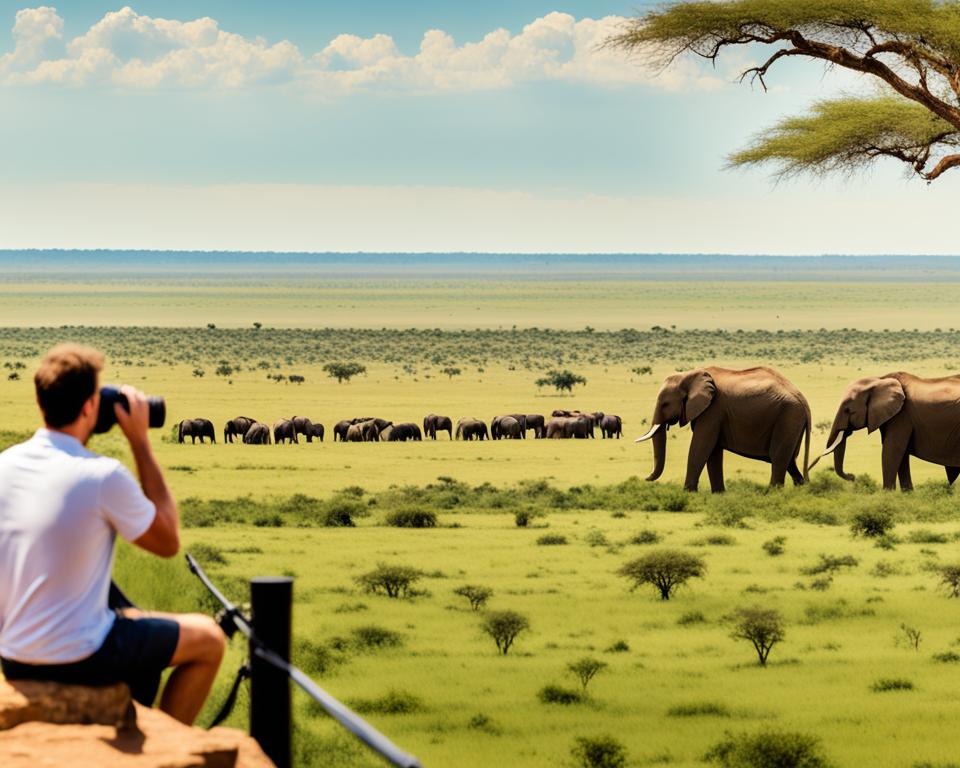
In conclusion, implementing ecotourism initiatives in Africa involves navigating challenges while embracing triumphs. By addressing the management of tourism activities, preserving cultural heritage, and fostering community involvement, Africa can harness the potential of ecotourism to create a sustainable and mutually beneficial relationship between tourism, conservation, and local communities.
Enriching Safari Experiences through Cultural Engagement and Education
Safari experiences are not just about witnessing wildlife in their natural habitats; they also offer a unique opportunity for cultural engagement and education. By immersing themselves in the local communities and their cultural heritage, travelers can gain a deeper understanding of the destinations they visit and foster cultural awareness and respect.
Building Cultural Awareness and Respect on Safaris
On safaris, cultural awareness is not limited to observing rituals and traditions but involves meaningful interactions with local communities. Through interactions with indigenous people, travelers can learn about their customs, beliefs, and way of life. This engagement creates a bridge between different cultures, promoting cross-cultural understanding and appreciation.
“By fostering cultural awareness, safari experiences transform travelers into ambassadors of cultural heritage, paving the way for global harmony and unity.”
Building cultural respect goes beyond passive observation; it requires embracing cultural differences and challenging stereotypes. Safaris provide a platform for travelers to dismantle biases and misconceptions, fostering a more inclusive and tolerant society.
Educational Programs and the Long-term Impact on Conservation
Cultural engagement on safaris also plays a crucial role in education, offering educational programs that focus on cultural heritage and the environment. These programs aim to raise awareness about the importance of preserving cultural sites and traditions, as well as the need for environmental conservation.
Educational programs in wildlife safaris involve activities such as guided tours, interactive workshops, and storytelling sessions. These initiatives provide travelers with a rich learning experience, enabling them to understand the interconnections between cultural heritage, conservation, and sustainable tourism.
By integrating cultural education into safari experiences, these programs have a long-term impact on conservation efforts. They empower travelers to become advocates for cultural preservation and environmental sustainability, driving positive change in the destinations they visit.
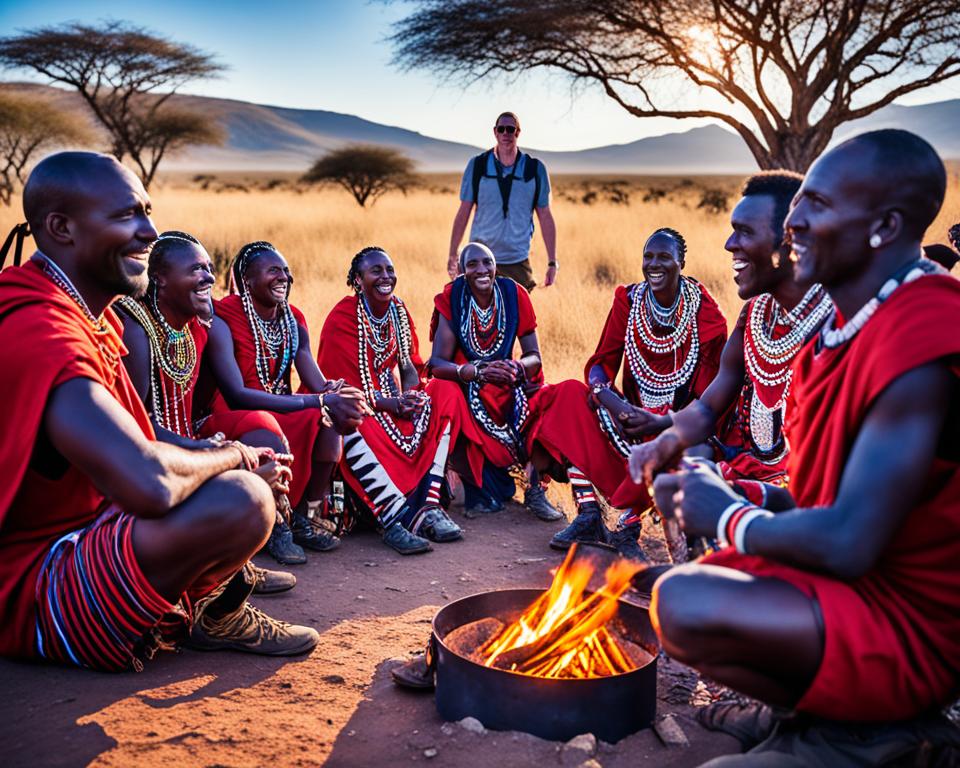
Enhancing Safari Experiences with Cultural Engagement and Education
Cultural engagement and education enrich safari experiences, adding a dimension that goes beyond wildlife sightings. By fostering cultural awareness and respect, safaris create an environment where travelers can deepen their understanding of diverse cultures and foster cross-cultural connections. Moreover, educational programs on safaris empower travelers to become agents of change, actively contributing to cultural preservation and conservation efforts in the long run.
| Benefits of Cultural Engagement and Education on Safaris | Conservation Impact |
|---|---|
| Enhanced understanding of cultural heritage | Increased awareness about the importance of conservation |
| Promotion of cross-cultural understanding and appreciation | Empowerment of travelers to become advocates for cultural and environmental preservation |
| Breakdown of cultural stereotypes and biases | Long-term positive impact on conservation efforts and community development |
Conclusion
Private wildlife safaris offer a transformative experience for travelers, combining adventure with education and community engagement. These safaris play a vital role in educating travelers about conservation and promoting sustainable travel practices. Through immersive experiences, they empower travelers to become agents of change in wildlife preservation and environmental sustainability.
By integrating conservation messages into their safaris, private wildlife operators instill a sense of responsibility and inspire travelers to respect and protect wildlife and their habitats. Through advanced sustainability practices, such as renewable energy use and efficient waste management, these safaris minimize their environmental impact. Additionally, by actively engaging with local communities, private wildlife safaris contribute to the socioeconomic development of these communities, fostering a more harmonious relationship between humans and wildlife.
Participation in private wildlife safaris allows travelers to make a significant difference in conservation efforts. Their support of responsible tourism contributes to the preservation of biodiversity, the protection of endangered species, and the promotion of sustainable development. By choosing private wildlife safaris, travelers become key stakeholders in the preservation of our natural heritage, actively contributing to a more sustainable future for both wildlife and humans.
